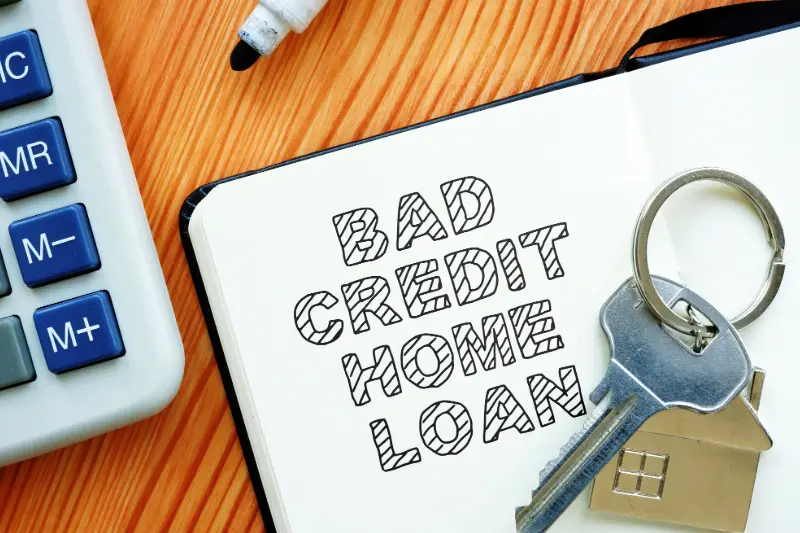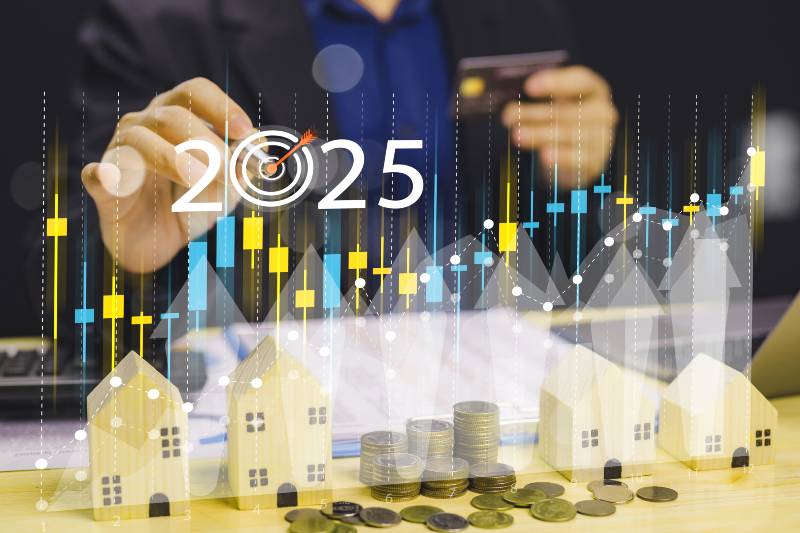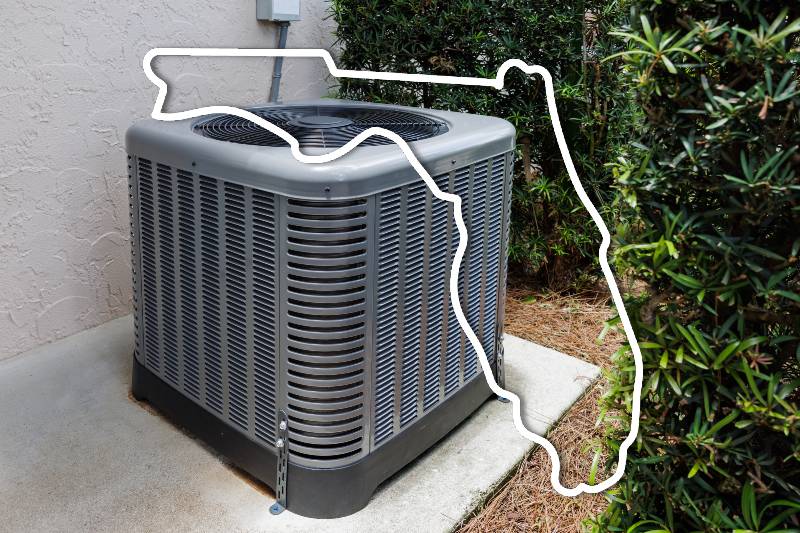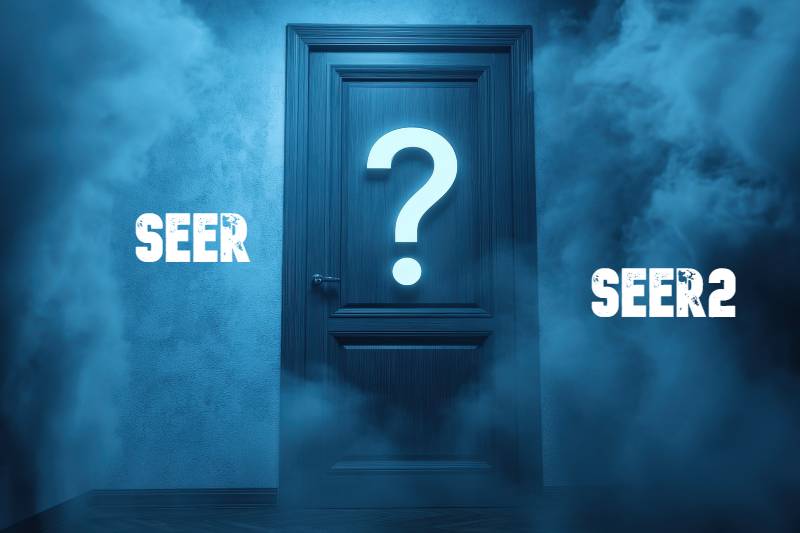Buying a home is often seen as a symbol of success and stability, but what if your credit score is less than perfect? You’re not alone. Millions of potential homeowners, just like you, grapple with the challenge of securing a mortgage with bad credit. But here’s the good news – it’s not impossible. Here, we will cover the ins and outs of buying a house with bad credit.
Understanding Credit and Its Impact on Home Buying
First, let’s decipher what ‘bad credit’ means when buying a home. If you have bad credit, it simply means your credit score is low, and lenders consider you a high-risk borrower. Credit scores range from 300 to 850. Generally, a score below 580 is considered ‘poor’ by most lending standards. However, this isn’t an impassable barrier; it simply signals that you need a strategy.
But does bad credit mean you’ve got to kiss your homeownership dreams goodbye? Absolutely not! We’re here to show how you can unlock the door to your new home.
Strategy #1:
Strengthen Your Financial Foundation
Want to impress lenders? Take control of your credit score by repairing it. Start by carefully reviewing your credit reports for errors and disputing them. Then, focus on paying down existing debt, especially those high-interest credit cards. Avoid opening new credit accounts, and make sure to make all future payments on time. Know that every step you take to improve your credit score brings you closer to your dream home. Let’s do this!
Strategy #2:
Explore Mortgages for Bad Credit – Government-Backed Loans
When you have less-than-stellar credit, government-backed loans can be your best friend. These include FHA loans, VA loans, USDA loans, HomeReady loans, and Home Possible loans. Each of these has unique features and benefits tailored to different needs.
FHA Loans: Low Down Payments and the Potential to Finance Down Payment Assistance
The Federal Housing Authority (FHA) loans require as low as a 3.5% down payment with a credit score of 580 or higher. You might still qualify if your score dips between 500-579, but you’ll need a 10% down payment. FHA loans allow for down payment funds to come from various sources, including gifts, grants, and down payment assistance programs.
USDA Loans: Rural Homeownership Without the Down Payment
The U.S. Department of Agriculture (USDA) oversees a program aimed at revitalizing rural areas by helping low- to moderate-income individuals purchase homes with no money down. USDA loans offer zero down payment options. Learn more about USDA loans in a comprehensive guide on loans and grants in 2024 for first-time home-buyers and more.
VA (Veteran’s Affairs) Home Loans: A Zero Down Option for Veterans and Service Members
For many military members, the VA Loan stands as one of the most significant benefits of service. Administered by the Department of Veterans Affairs, this program allows eligible veterans, active-duty service members, and some members of the National Guard and Reserves to purchase homes with zero down payment.
USDA Loans: Rural Homeownership Without the Down Payment
The U.S. Department of Agriculture (USDA) oversees a program aimed at revitalizing rural areas by helping low- to moderate-income individuals purchase homes with no money down. USDA loans offer zero down payment options. Learn more about USDA loans in a comprehensive guide on loans and grants in 2024 for first-time home-buyers and more.
Freddie Mac’s Home Possible® and Fannie Mae’s HomeReady® Programs
HomeReady Loans and Home Possible Loans cater to low-to-moderate-income borrowers with credit scores as low as 620. These loans may also offer lower mortgage insurance rates, making them more affordable long-term. Learn more about USDA loans in a comprehensive guide on loans and grants in 2024 for first-time home-buyers and more.
Strategy #3:
Explore Best Mortgage Lenders for Borrowers with Bad Credit
So, who’s willing to take a chance on you? Plenty of lenders, actually. Some reputable mortgage lenders specialize in working with low credit score borrowers. Each lender has its pros and cons, so take the time to do your homework before settling on one.
Strategy #4:
Work with a Credit Counselor
If you’re struggling to get approved for a loan, consider working with a certified credit counselor. They can help you review your credit reports and come up with a plan to improve your credit score. They may also be able to negotiate with creditors on your behalf to lower interest rates or settle outstanding debts. Some non-profits offer these services for free, but be wary of any companies that charge high fees for their services. Make sure to do your research and work with a reputable organization. It’s important to remember that credit counseling is not a quick fix but rather a long-term solution for improving your overall financial health.
Strategy #5:
Save for a Larger Down Payment and Entertain Paying Private Mortgage Insurance
Putting down a more significant chunk of change upfront can offset a lender’s skepticism toward your credit score. Think of a larger down payment as a peace offering to the lending institutions – it shows your commitment and reduces the lender’s risk, potentially leading to better loan terms and interest rates.
If you can’t afford a large down payment but are willing to pay for private mortgage insurance (PMI), this may also help you secure a mortgage. PMI is an additional cost that protects the lender in case of default and can be removed once your loan-to-value ratio reaches 80%. However, keep in mind that paying PMI will increase your monthly mortgage.
Strategy #6:
Compensate with Your Financial Strengths when Preparing the Application for a Mortgage with Bad Credit
When you’re ready to apply, keep in mind that lenders don’t just look at your credit score – they consider your entire financial picture. This includes your income, employment history, debt-to-income ratio, and more. So, even if your credit score isn’t great, other factors could tip the scales in your favor.
Shine a spotlight on the strengths. Maybe you have a solid job history, a hefty savings account, or low existing debt. These compensating factors can sometimes sway lenders to look past credit blemishes.
Make a Long-Term Commitment to the Road of Credit Improvement
You may need to take multiple steps to build your credit, and this takes time and commitment. And down the road, the higher your score, the better your chances of securing financing with more favorable terms. Think of your current situation as a starting point, not a final destination.
Patience and Persistence
Patience is your ally here. With consistent effort and a strategic approach, homeownership can be within reach.
As a trusted advisor in the property realm, my parting wisdom is this: don’t let a number define your dreams.
Homeownership is a big step and possible, regardless of credit score. With the right preparation and mindset, those keys to a new home can be in your hands before you know it. Now, go forth and conquer that path – one step at a time!
The information in this article does not qualify as professional financial advice for any individual. Consult a financial advisor about your particular circumstances.
At Property.com, we’re here to guide you through every step of your real estate journey. Learning how to achieve your goal of buying a home with bad credit is just one of the many resources we provide to help you achieve your real estate goals.
Keep exploring our many helpful articles and resources, and stay informed on the latest news.
Sign up here for news on what’s important to you. Your real estate dreams await! With Property.com as your partner, you have the power to make them yours.












0 Comments